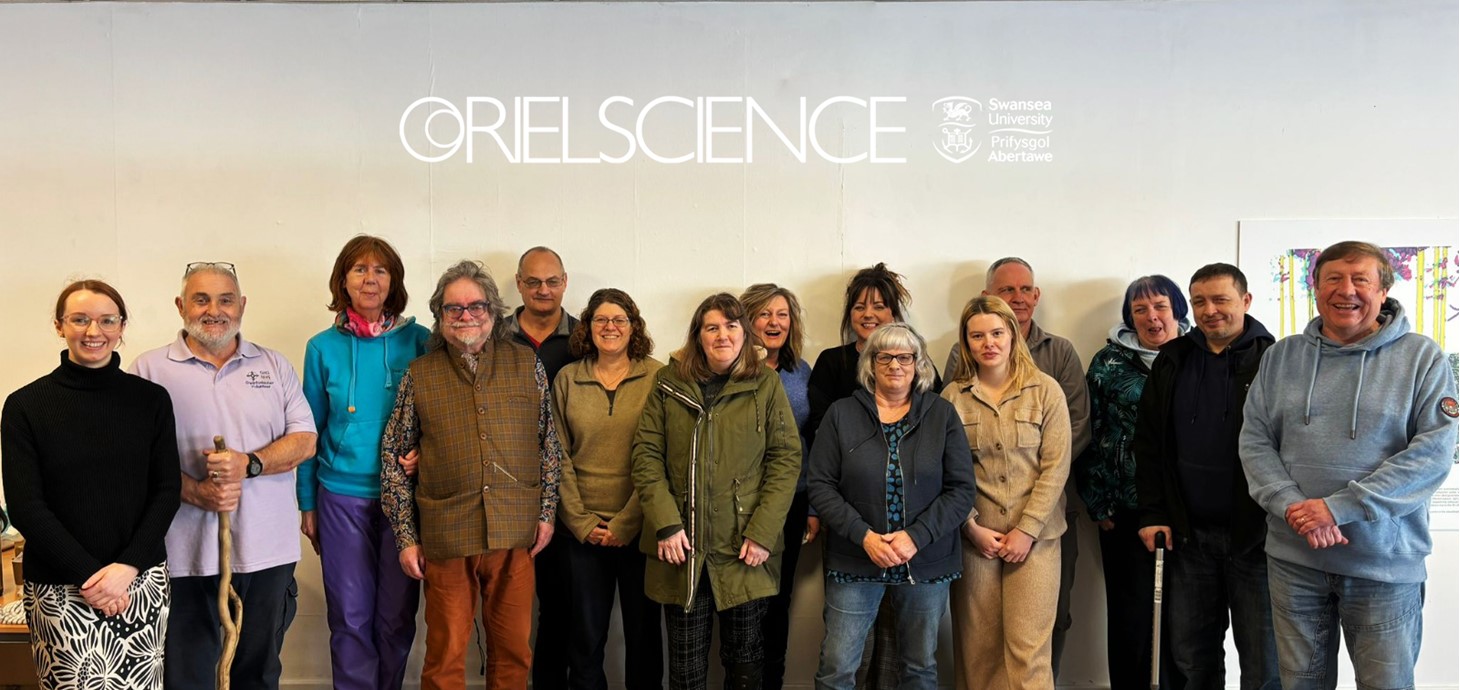
Oriel Science, Swansea University's pioneering public exhibition centre, has been helping brain injury patients undergoing rehabilitation to improve their health and wellbeing through its first Social Prescribing project.
The ten-week project, a collaboration with Swansea Bay University Health Board (Swansea Bay UHB)’s Regional Neuropsychology and Community Brain Injury Service, invited patients to several interactive sessions at Oriel Science’s city centre venue, from stimulating talks and creative activities to hands-on experiments.
The sessions, delivered by Swansea University academics, were designed to give participants a closer look at the research and ideas behind Oriel Science’s Imaging exhibition. They also provided a friendly environment to encourage social connection through shared experiences.
Social prescribing enables GPs and primary care professionals to refer patients to a variety of non-clinical community or volunteer services, such as gardening, cookery classes, financial advice services, and arts and crafts groups.
The Museums as Spaces for Wellbeing report by the National Alliance for Museums, Health and Wellbeing highlights the potential for museums and other institutions like Oriel Science to provide opportunities for community-building and help foster a sense of inclusion.
Project co-lead Dr Jess Fletcher, senior lecturer in biomedical sciences at Swansea University, said: “Inspired by the Museums on Prescription project, we wanted to explore if engaging in activities based around science and research at Oriel Science could have similar wellbeing benefits for our local community.
"The project has exceeded our expectations. We have received wonderful feedback from participants and have thoroughly enjoyed getting to know them and the clinical team. We hope to continue and build upon these activities in the future.”
Dr Zoe Fisher, a consultant clinical psychologist at Swansea University’s Health and Wellbeing Academy and Swansea Bay UHB’s Regional Neuropsychology and Brain Injury Service, said: “This project provided an excellent context for social connection, positive emotions, meaning and achievement all of which contribute to increased wellbeing and community integration. The experience has been so uplifting for participants and so helpful for their recovery and for developing new interests as they rebuild their lives post brain injury.”
Denise Davey, volunteer mentor, Brain Injury Service, Swansea Bay UHB, said: "As a recently discharged patient who has benefited from the Brain Injury Service, I jumped at the opportunity to work on this project. Whilst recovering, the world can feel alien, with the simplest of tasks overwhelming.
“The opportunities the Brain Injury Service provide take us outside a daily or clinical setting, allowing us to experience healthy physical and mental stimuli. The Oriel Science project has covered wide-ranging, 'unusual' topics, giving many of us a newfound appreciation and refreshing perspective of the world around us. Best of all, you don't need any previous science knowledge. It has been a mind-and-life-enhancing experience.”
Since its launch in 2016, Oriel Science has engaged with over 160,000 members of the community and delivered workshops to 4,000 school students.
The introduction of the Social Prescribing project is further evidence of the centre's commitment to bringing research to the community, collaborating closely with other local organisations, and addressing social isolation.
